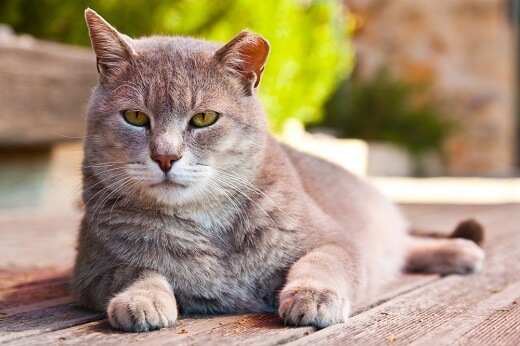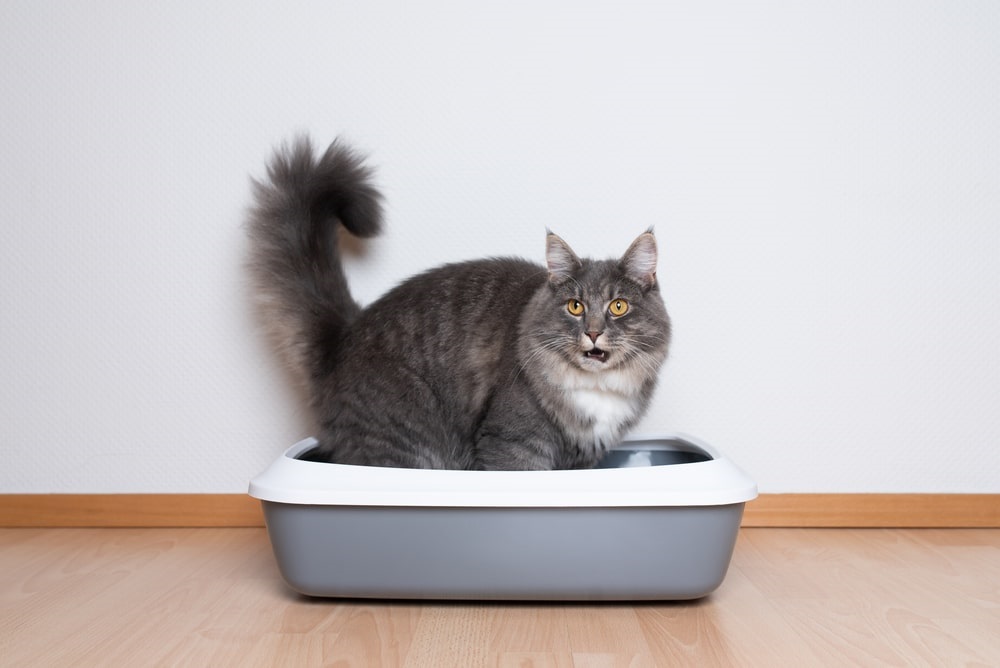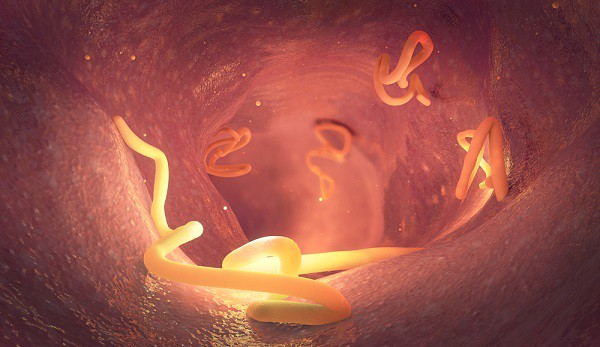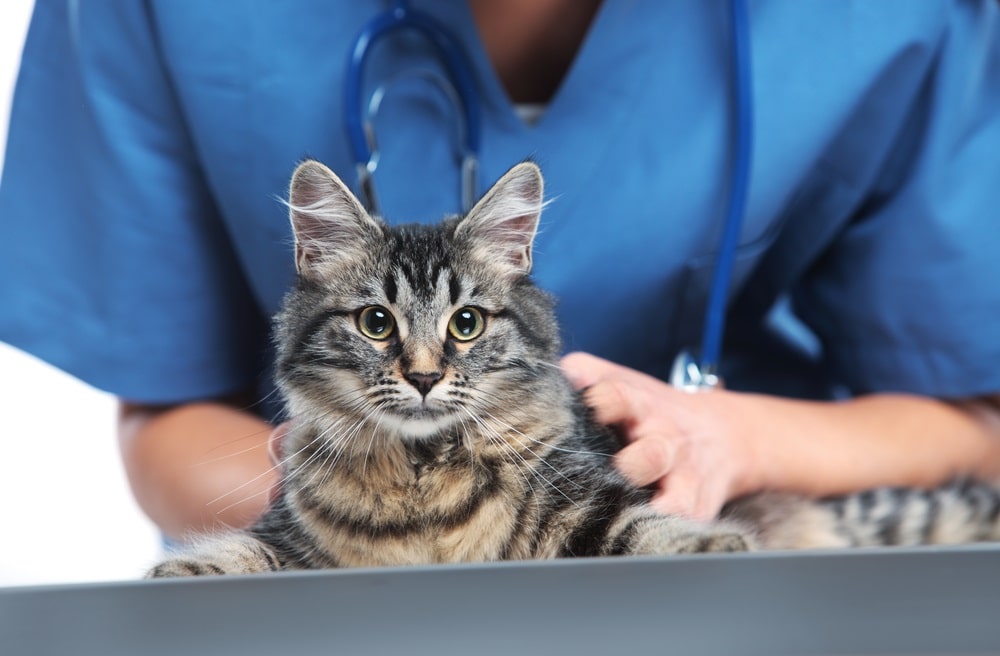
Is your cat unexpectedly leaking a mysterious brown liquid, leaving you feeling worried and confused?
It can be a rather distressing experience for both you and your cat, especially if you are not sure about the underlying cause.
But why is your cat leaking brown fluid?
A cat that is leaking brown fluid could be having anal gland issues, bowel incontinence or a vaginal infection for female cats. These conditions can cause pain and discomfort for your cat. A visit to the vet is needed to treat your cat.
In this article, we will explore the possible reasons behind this mysterious leakage and discuss the various signs and symptoms that you should be aware of.
Anal Gland Problems
“Anal sac disorders can cause brown fluid to leak out of your cat’s anus.”
Cats have anal glands or anal sacs that are located in pairs near the cat’s anus.
The anal sacs are able to secrete a fishy and pungent liquid that is used for marking territory.
This secretion is usually yellow or brownish in color and ranges from watery to mucousy in texture.
When your poor kitty is having an anal sac disorder, this liquid will likely be brown in color, has a thicker viscosity and can have a bad odor.
Anal sac disorders can cause your cat to leak brown fluid from its anus.
Causes Of Cat Anal Gland Discharge

There are a number of causes as to why your cat is leaking brown fluid from its anus due to an anal gland disorder.
Fecal Contamination
When your cat has diarrhea due to a stomach bug, it will result in loose and watery stools for a few days.
And if you don’t clean your cat properly, there can be leftover feces stuck around its anus or the fur surrounding the area.
This can cause fecal contamination of the anal glands if left uncleaned for too long.
Impacted Anal Glands
Impacted anal glands don’t necessarily mean blunt force trauma to its butt but due to a blockage of the anal sacs duct.
When the duct is blocked, the fluid in the anal sacs can’t flow out freely and can cause the glands to be swollen.
You can even notice black spots on your cat’s anus which could mean a blockage.
It’s not painful for the cat but if left untreated for too long, it can lead to a painful infection.
Anal Gland Infection
Anal gland infection, also known as Saculitis is a painful inflammation of your cat’s anal sacs.
This will cause swelling and will also lead to anal gland abscess.
Your cat needs immediate medical attention if it has an anal gland infection as it can cause immense pain to your cat.
To make matters worse, your cat’s anal glands can also rupture which can lead to life-threatening health issues.
Symptoms Of Anal Sac Disorders
There are a couple of telltale signs that your cat will exhibit as well when its anal glands are acting up.
Cat Butt Scooting
This is something that you see more often in goods that have anal sac disorders.
They will drag their butts on the floor when they are experiencing discomfort around the anal area.
When doing so, your cat will tend to leave a trail of brown fluid on the ground.
Pain When Using The Litter Box

When your cat is meowing or letting out a blood-curdling yowl while pooing, it is another red flag that it might be suffering from anal sac disorders.
Weird litter box behavior might also be a clue like when you see your cat sitting in the litter box or going in and out numerous times.
If your cat’s litter box is placed on the carpet, it can leave many traces of wet and dry cat litter all over your carpet.
Make sure you know how to remove cat litter from your carpet properly or it can damage your carpet fibers.
Licking And Biting
Cats have a tendency to constantly lick and bite an area that is causing them pain or discomfort.
If you notice your cat grooming its anus area excessively, that is another sign that its anal glands are inflamed.
This excessive grooming can also cause your cat to lose hair at the base of its tail.
Swelling
This is a rather straightforward red flag if you notice chronic swelling around your cat’s anus.
Try pressing that area gently to see if there are any hard lumps as well.
Chasing Its Own Tail
Cats are funny creatures and can chase their own tails for a variety of weird reasons.
But if your cat has been chasing its tail out of the blue then it deserves a closer look.
Treatment For Cat Anal Gland Discharge
“It is best to be mentally prepared for the onslaught on your nostrils.”
If your cat has been butt scooting, tail chasing or excessively grooming its anal region, then it would be good to bring it to the vet to check.
The vet will need to express your cat’s anal glands or drain the anal gland abscess if required.
Your vet will probably ask you to manually express the glands at home over the next few days just to make sure the sacs are totally drained of any pus or fluid build-up.
It is a relatively simple process once you get the hang of it.
- Wash your hands and wear gloves before starting
- Get someone to help hold down the cat in a standing position
- Locate the anal glands (5 and 7 o’clock of the anal opening)
- Gently press each gland inward and upward until its empty
- Wipe and clean the secretion with an unscented wet wipe
The secretion from the cat’s anal glands isn’t the most pleasant thing to smell and I’ve had cat owners telling me how badly it made them gag.
It is best to be mentally prepared for the onslaught on your nostrils.
How To Keep My Cat’s Anal Glands Healthy?
Keeping your cat’s anal glands in good health can minimize any risk of infection.
Make sure that your cat is having good and regular bowel movements. Chronic diarrhea or constipation can cause anal gland issues.
Feed your cat some fresh pumpkin or psyllium husk to help regulate bowel movements.
Make it a point to wipe your cat’s butt after it defecates.
I know cats can clean up after themselves but sometimes they don’t do a good job.
A study conducted on cats in the UK found that cats that are overweight, older and allowed to roam outdoors tend are at higher risk of anal sac disorders. 1
You can keep your cat’s anal sacs in good health by keeping your cat indoors and not getting them fat.
Gastrointestinal Issues
A gastrointestinal issue in your cat can cause it to be leaking poo. Cats that are leaking poo everywhere can’t control their bowel movements.
This condition is called bowel or fecal incontinence.
Bowel incontinence can be caused by:
Intestinal parasites

Intestinal parasites are part and parcel of a cat’s life, especially for kittens or newly adopted strays.
The most common types of intestinal parasites are:
- Tapeworm
- Roundworms
- Hookworms
These parasites will live in your cat’s intestines and feed off its nutrients.
Symptoms can include unexplained weight loss, bad diarrhea, vomiting and white moving specs in your cat’s stools.
The best way to get rid of this infection is to give your cat dewormers which you can get from the vet.
Food Allergies
Have you recently changed your cat’s diet or started feeding it something new?
It could be that your cat is allergic to this change in its diet.
The most common signs of a food allergy in cats are loose stools, nausea and itchy skin.
Food allergies cannot be cured and are only avoided. You will need to find another better alternative for your cat.
Spinal Cord Injury
Damage to your cat’s spinal cord can affect the nerves that control its lower intestines.
This is the part of the intestines that removes fecal matter from your cat.
Your cat will have trouble controlling its bowel and can start to leak excrement unknowingly.
Why Is My Female Cat Leaking Brown Fluid?
If you have a female cat at home and notice a foul-smelling discharge that isn’t coming from her anal glands, it’s possible she may be experiencing a vaginal infection or vaginitis.
It is common to observe a discharge that may contain blood, pus, and mucus.
The discharge may appear as a brown fluid if it’s a combination of these substances.
Causes And Symptoms
Here are some signs to look out for if your female cat has vaginitis:
- Rubbing its rear end on the floor or surface
- Peeing outside of its litter box
- Vaginal discharge
- Excessive grooming of the genitals
- Discharge from the vagina
- Inflammation in the area around the vagina
Vaginitis can be caused by:
- Bacterial or viral infection
- Urinary tract infection (UTI)
- Hormonal imbalance
- Tumorous growth
- Injury to the genital area
Diagnosis And Treatment

You will need to bring your cat to the vet for a proper check if there’s any form of abnormal vaginal discharge.
The vet will further examine the vaginal discharge or carry out diagnostic imaging to get to the root cause.
Treatment will usually be in the form of antibiotics and vaginal douches.
If you don’t have any plans to use your cat as a breeder then spaying would help cut down the risk of such health issues in female cats.
Conclusion
It can be a terrifying experience seeing brown and foul-smelling liquid discharge coming out from your cat’s butt or vagina.
Such disorders can be fairly serious but often completely treatable if brought to the vet sooner than later.
References
Nora is a passionate writer with a love for books, animals, and gardening.
Her writing is inspired by her two cats and a loyal dog, who serve as her muses, as well as the tranquility she finds in her garden.
With a knack for storytelling, Nora offers a unique blend of book recommendations, heartwarming animal tales, and gardening insights.
Whether you’re interested in paws, petals, or page-turners, Nora’s world is a treasure trove of engaging content.

